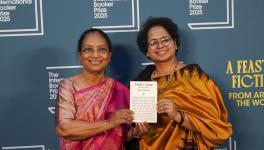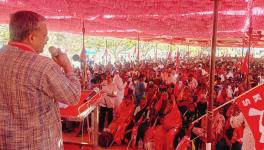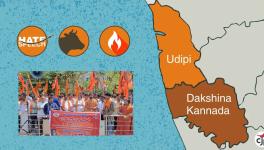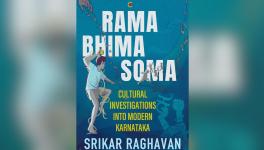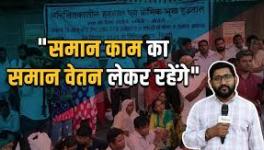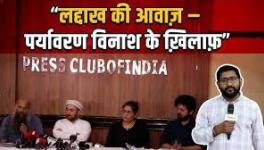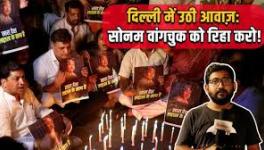The Gentle Triumvirate of Karnataka
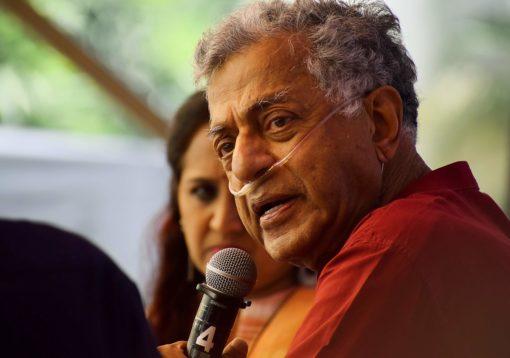
Image Courtesy: New Indian Express
We have lost all three of them – first A.K. Ramanujan, then U.R. Anantha Murthy, and now Girish Karnad, all three brilliant men from Karnataka, thinkers who had the genius of creative writing. All three of them were friends, and acknowledged their influence on each other. All three of them were my friends, Girish, for the longest time.
I wonder whether there are similar small groups of writers in the other Indian states, world-famous but also rooted in their own states? I have not come across, say, three Tamil or Bengali literary figures who were known in both English and Tamil or both English and Bengali.
I bring this up because I think Karnataka is special. It's cosmopolitanism has been built into the place for decades. Even though it was a princely state, its princes were sophisticated enough to encourage cultural diversity. We have R.K. Narayan and R. K Laxman, both Mysoreans, sending waves across India and the world with their writing and their cartoons – so expressive of "native" India and yet so well-known and celebrated in the big wide world.
Karnataka was also a pace setter as a princely state with a modern touch. We have pioneers in building industrial enterprises, increasing the power of indigenous production in India. Sir M. Vishvesharya is well known across India for this "virtue" — entrepreneurship. Scientists like Sir C.V. Raman flourished in Karnataka as the state gave Sir C.V. land to build his scientific research Institutions. The Princely State of Mysore welcome JRD Tata. Thus it is my impression and proposal that the state of Mysore, which is now Karnataka, had a civilisational sophistication and an open mind — to be able to encourage its "native" civilisation but also to open its doors to modernity.
Girish, after being all over the world and being welcomed everywhere, came back to live in Bangalore, and continued to produce brilliant plays. There was a cutting edge to the moral consciousness of some of Girish’s plays. His writings built on our own folk literature with a philosophical underpinning. Ramanujan also had this characteristic that he would draw upon, for example folk tales to reveal the innate wisdom in our people. I can never forget Ramanujan's contribution to separating mother tongue from mother's tongue. Mother's tongue he once described as the stories and fables that mothers would relate to their children, while cooking in the kitchen. They would relate these folk tales to children in the local, colloquial idiom. Ramanujan argued that this was setting the basis for the children’s understanding of their culture and its morals. I found this distinction between mother tongue and mother's tongue brilliant.
I first met Girish at Oxford. He was a student of Magdalen College and I was at St Anne’s college. This was 1960. In those days, there were not many students from Karnataka, if any, at Oxford. They were mostly the Nehrus, the Menons, the Jhas, and the Dayals, and children of some other well-known civil servants and elites of Delhi and, of course, students from Calcutta. Presidency College had a special tie-up with Oxford and would give scholarships to students so that we met Bengalis like Tapan Raychaudhuri….
I was a misfit in that I got into a college in Oxford through various unexpected mishaps. When I heard that there was a student from Karnataka in one of the colleges in Oxford, I was eager to meet him and to have a friend from the South so to speak. So, I reached out. And Girish invited me for tea, a kind of style in Oxford, in his room in Magdalen College. He told me something of his family, his talented mother. But we did not necessarily deepen our friendship at that time.
But when I came back to India, our friendship deepened. I was travelling in Karnataka, doing a great deal of research as well as working in State Govt committees in Karnataka. Girish told me of his home in Dharwad, and arranged for me to visit his home where I met his mother. His mother was so affectionate and welcoming. I remember her sitting in her verandah and, after a while, bringing out her harmonium and singing.
For the next several decades, we would meet and then came a time when he moved to Bangalore. By that time I had established the branch of an Institute, the Institute of Social Studies in Bangalore.
The last time I met Girish was at the first memorial meeting for Gauri Lankesh. Some of us in New Delhi had petitioned the government, protesting against the arrest of members of civil society on the allegation that they were Naxals. At the anniversary event to which Girish had invited me, he hung a placard around his neck saying ‘Me too Naxal’, which many of us also wore. We sat together at the anniversary event. He then dropped me home, all the way, despite his oxygen cylinder and the tubes in his nose. I did not realise then that I would not have the joy of sitting with him again.
Devaki Jain is a development economist and activist. She has been an active member of the Women's Movement - local, national and worldwide through women's organisations and networks. Jain is one of the two women awarded the Bradford Morse Memorial Award by the United Nations at the World Conference at Beijing for outstanding achievements through professional and voluntary activities in promoting the advancement of women and gender equality for 20 years.
Get the latest reports & analysis with people's perspective on Protests, movements & deep analytical videos, discussions of the current affairs in your Telegram app. Subscribe to NewsClick's Telegram channel & get Real-Time updates on stories, as they get published on our website.












